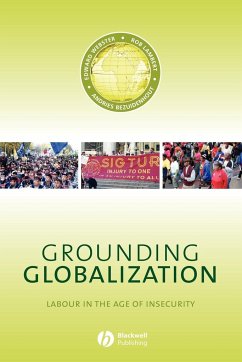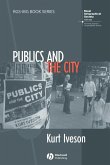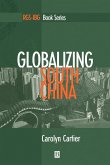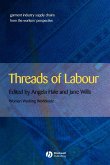Widespread claims have been made on the emergence of a new labor internationalism in response to the growing insecurity created by globalization. However, when persons face conditions of insecurity - as a result of war, terrorism, environmental catastrophe, or insecurity in the workplace - they often turn inwards. During previous phases of global insecurity we witnessed the rise of fascism. What is distinctive about this book is that it grounds globalization in the everyday lives of workers, their households, and their communities. It compares three towns, Orange in Australia, Changwon in South Korea, and Ezakheni in South Africa, and shows how the global restructuring of white goods corporations is creating a profound experience of insecurity within workers, their families, and their communities. The book contains a warning. At times, workers do turn inward and become fatalistic, even xenophobic. But there are also signs of hope. The book explores the possibilities of reempowering labor through engaging space and scale in new ways. Workers are rising to the challenge of neoliberal globalization by attempting to globalize their own struggles.
"Grounding Globalization represents a culmination of the individual and collective efforts of the authors to establish a 'new' international labour studies. It is a bold and ambitious project, but it is also one precisely based on a 'grounded' understanding of how workers live their lives, adapt to the discipline of the market, and sometimes vigorously contest it." (Labor History Journal, November 2008)
"Grounding Globalization is a call for a newpolitics for the social force that labor as social movementrepresents in the era of global insecurity. Theoreticallysophisticated, empirically grounded and politically visionary, itwill be read with great interest by students and also by theorganic intellectuals of the emerging global labormovement."
- Ronaldo Munck, Dublin City University
"This is an important, insightful, and wide-ranging bookthat tackles one of the most important issues of our time.Grounding the theoretical and political narrative in empirical casestudies, the book is an excellent account of the realities ofeconomic restructuring and the political possibilities facing theglobal workforce. It makes a major contribution to academic debateswhilst also providing important lessons for activists and policymakers."
- Andrew Cumbers, University of Glasgow
"Grounding Globalization is a call for a newpolitics for the social force that labor as social movementrepresents in the era of global insecurity. Theoreticallysophisticated, empirically grounded and politically visionary, itwill be read with great interest by students and also by theorganic intellectuals of the emerging global labormovement."
- Ronaldo Munck, Dublin City University
"This is an important, insightful, and wide-ranging bookthat tackles one of the most important issues of our time.Grounding the theoretical and political narrative in empirical casestudies, the book is an excellent account of the realities ofeconomic restructuring and the political possibilities facing theglobal workforce. It makes a major contribution to academic debateswhilst also providing important lessons for activists and policymakers."
- Andrew Cumbers, University of Glasgow








